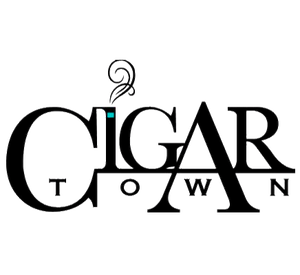
When Were Cigars Invented? The History of Cigars: From Ancient Rituals to Modern Luxury
The history of cigars is a fascinating journey through time, cultures, and continents. Starting from ancient rituals to becoming a modern symbol of leisure and luxury, cigars have played various roles in societies around the world.
Origins and Early Use
The use of tobacco and the practice of smoking rolled tobacco leaves can be traced back to the ancient civilizations of the Americas. The earliest known usage of cigars was by the Mayan civilization (circa 2,500 B.C.), as depicted in various artifacts, including a ceramic pot from the 10th century that illustrates individuals smoking rolled-up tobacco leaves. So it's likely the first cigar was smoked 2,500 years before Christ.
When Christopher Columbus landed in the Caribbean in 1492, his crew encountered the indigenous Taino people of Cuba, who introduced them to "cohiba," their term for rolled tobacco leaves. This introduction marked the beginning of tobacco's spread across the world.
European Adoption and Evolution
Tobacco quickly caught on in Spain and Portugal, from where it spread to France and eventually throughout Europe. Jean Nicot, the French ambassador to Portugal, played a significant role in popularizing tobacco by promoting its medicinal properties. By the 17th century, smoking rolled tobacco leaves had become common among Europeans.
Industrialization and Global Spread
The 19th century marked a significant evolution in cigar production with the establishment of cigar factories, particularly in Cuba, which became the heart of cigar manufacturing. The development of these factories coincided with the broader industrialization of tobacco processing and distribution. Cigar smoking became a fashionable trend across Europe and the Americas, enjoyed by both the elite and common folk alike.
In the United States, the culture of cigar smoking was bolstered by figures like Israel Putnam, who introduced Cuban tobacco seeds to the New England area, leading to the development of the renowned Connecticut wrapper.
Cigar Making: An Art and Industry
The art of cigar making developed into a significant industry, particularly in regions like Ybor City in Tampa, Florida, which became known as the "Cigar Capital of the World" by the early 20th century. This area was renowned for producing hundreds of millions of cigars annually, thanks to the skills of immigrant laborers from Cuba and other countries.
Modern Day Cigar Culture
Today, the tradition of cigar smoking continues to thrive globally, with a renewed interest in handcrafted, premium cigars. The modern cigar industry balances tradition with innovation, incorporating new blending techniques and flavors while maintaining the artisanal craftsmanship that defines high-quality cigars.
Conclusion
The history of cigars is more than just the story of a product; it is a narrative that intersects with global trade, cultural exchanges, and social transformations. From its roots in ancient Mayan civilization to its status as a symbol of sophistication in the modern world, the cigar has remained a potent symbol of both tradition and luxury.


